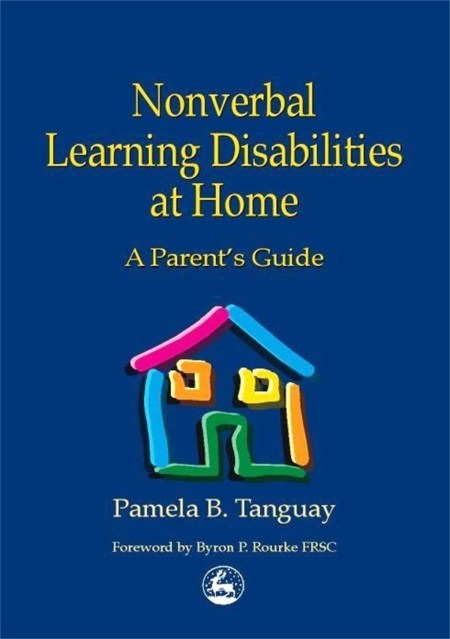Nonverbal Learning Disabilities at Home
On sale
15th December 2000
Price: £16.99
Do you know a child who is bright, charming and articulate, but has no friends? A child who showed early signs of intelligence, but is now floundering, academically and emotionally? Children with Nonverbal Learning Disabilities (NLD) are an enigma. They’re children with extraordinary gifts and heartbreaking challenges that go far beyond the classroom. Nonverbal Learning Disabilities at Home explores the variety of daily life problems children with NLD may face, and provides practical strategies for parents to help them cope and grow, from preschool age through their challenging adolescent years. The author, herself the parent of a child with NLD, provides solutions to the everyday challenges of the disorder, from early warning signs and self-care issues to social skills and personal safety. User-friendly and highly practical, this book is an essential guide for parents in understanding and living with NLD, and professionals working with these very special children.
Newsletter Signup
By clicking ‘Sign Up,’ I acknowledge that I have read and agree to Hachette Book Group’s Privacy Policy and Terms of Use
Reviews
An essential volume for parents that incorporates a wide variety of issues, from managing buttons and zippers to using deodorant and shaving cream. Having a daughter that was diagnosed with the the disability has helped Tanguay to include helpful hints and expert opinions in the book. This volume is a surefire way to help tackle the puzzling world of NLD.
Pamela Tanguay's daughter was diagnosed at the age of nine as having Nonverbal Learning disability (NLD). Since, she has become active in advocating for people with this condition, she wrote this book in order to help parents and adults caring for children with NLD. The author's advice is sensible and straightforward. In addition to helping parents cope it will also help enlighten teachers and other professionals working with such children. The book emphasises the extraordinary gifts children with NLD often possess and rewards to those who work with them. Diagnosis of NLD is becoming more common so this, the first accessible work on the subject to be written by someone active in this area, is doubly welcome.
As a record of the personal experiences of one child with NLD, this book is comprehensive and detailed, with many examples that will undoubtedly be of interest and of use to parents/teachers of children with NLD and /or other disorders. The content provides an interesting and informative insight into one mother's devoted work on her child's disorder.
This book presents the problems NLD Children will face in their everyday life, as well as suggesting strategies doe helping them to cope and grow. It addresses NLD Children from pre-school to adolescence. Older teens and young adults may also benefit from much of the content.
Parent and advocate extraordinaire, Pamela Tanguay has contributed immensely to the presently limited literature on NLD… Her advice is straightforward, sensible, cohesive and easily understood. This guide will not only serve as a welcome blueprint to the overwhelmed and under-supported parents of children with NLD, but also as an eye-opener to educators and other professionals working with individuals with NLD in helping them to recognize just how much effort it actually takes to parent a child with NLD.
The author has provided a book that is essential reading for caregivers of children and adolescents with NLD. It should not only be read but kept on hand for easy reference as the youngster develops. It should be valued as a rich source of helpful suggestions, and as a springboard for the creativity of the concerned caregiver. Pamela Tanguay has done all of us involved with the syndrome of NLD a great favor by providing this book.
During my search to understand Asperger's Syndrome (AS) I was fortunate enough to discover Pamela Tanguay and the world she knows best - the world of Nonverbal Learning Disorders (NLD). Though there might be subtle differences between these two syndromes, there is very little doubt in my mind that one echoes the other in terms of what works to help those diagnosed with either AS or NLD. Pamela Tanguay's book, Nonverbal Learning Disabilities at Home, is a must-have for anyone wanting to know more about either of these developmental delays. It is absolutely stuffed full with astutely sound reasoning and incredibly perceptive advice based on the research of the top names in the NLD field. I cannot imagine my library without it. Go get it. Now!

